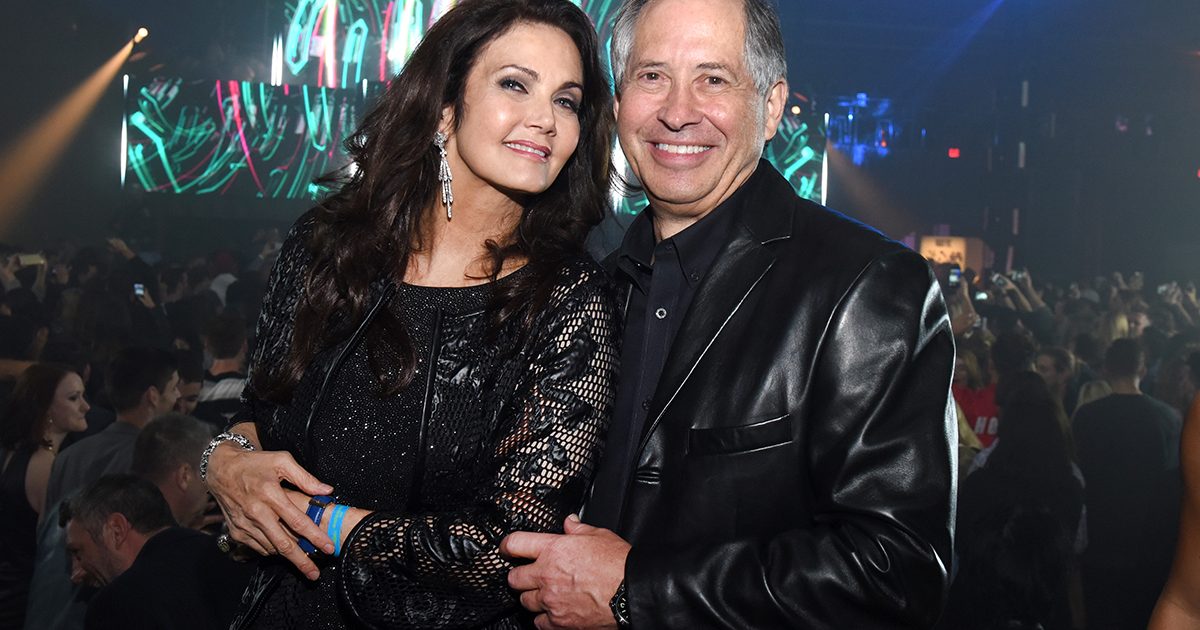Life After Robert: Coping With Losing a Spouse
- Navigating life after losing your spouse to cancer is never easy; Wonder Woman star Lynda Carter would know.
- Eight months after losing her beloved husband, Robert Altman, to myelofibrosis, a rare blood cancer, Carter is opening up about life after love.
- Dealing with the grief of losing a loved one and recovering from that experience is a highly personal process, and everyone goes through it differently.
"The next part of my life is I want to learn who I am," Carter, now 70, tells PEOPLE. "I don't know who I am without Robert."
Read MoreLynda & Robert's Love Story
Their love affair spanned nearly four decades that's a long time. "It was a real romance," she tells PEOPLE of their love.
It all began in 1982 when Carter, who played Diana Prince (a.k.a Wonder Woman) in the hit 1970s television series Wonder Woman, met Altman, a lawyer in Washington, D.C. The two met at a dinner hosted by Maybelline; Carter at the time was the face of the makeup company and Altman was the attorney for Maybelline's parent company.
Carter was in the process of divorcing her first husband, Hollywood manager Ron Samuels. But that didn't matter. She and Altman instantly hit it off, and the rest is history, as they say. "I was not prepared to meet anyone new," she says. "I was going to do it on my own."
The couple wed in 1984 and had two children together: James Altman, 33, and Jessica Carter Altman, 31. Both Altman-Carter kids are attorneys, just like their father. Jessica is also a singer-songwriter, taking after her mother.
Life After Robert: Coping With Losing a Spouse
Recovering after losing a loved one to cancer, especially a partner, isn't a "one-and-done" process, many members of the SurvivorNet community have told us; one widower even told us that the idea of "moving on" isn't realistic, or even desired.
The Toughest Conversations: Losing a Spouse to Cancer
"I don't even think I want to move on," Doug Wendt, who lost his wife of 25 years to ovarian cancer, said during a previous interview with SurvivorNet. "But I do want to move forward, and that's an important distinction. I encourage anyone who goes through this journey as a caregiver who then has to face loss to think very carefully about how to move forward."
The point is that moving on and dealing with grief is different for everyone; Carter's experience moving on has been different than Wendt's experience, and that's OK.
View this post on Instagram
Since Altman's passing, Carter has decided to cope by turning to her first love music. She did this to also honor her late husband's memory. On Friday, she's releasing a new song entitled Human and Divine. She wrote the song as a tribute to the couple's love story: "I was really trying to define love and loss and make sure it was about the human-ness of love," she says.
Dealing with the grief of losing a loved one and recovering from that experience is a highly personal process, and everyone goes through it differently.
Understanding Myelofibrosis
Altman died from myelofibrosis in February at the age of 73. It's unclear when he was diagnosed with this rare blood cancer, and how long he fought the disease.
Myelofibrosis is a rare disorder in which abnormal blood cells and fibers build up in the bone marrow, according to the Leukemia & Lymphoma Society. This rare blood cancer is one of a related group of blood cancers known as myeloproliferative neoplasms, or MPNs, in which bone marrow cells that produce blood cells develop and function abnormally.
There isn't one effective treatment for patients with myelofibrosis, nor is there a cure. This is because patients have a varying array of symptoms and/or circumstances that require different treatment options; some patients will even remain free of symptoms for years. These patients don't require any immediate treatment, according to LLS. But all myelofibrosis patients need to be closely monitored by a doctor.
According to LLS, the only potential cure for myelofibrosis is allogeneic stem cell transplantation. This procedure involves transferring the stem cells from a healthy person (the donor) to the patient's body after high-intensity chemotherapy or radiation. The donated stem cells can come from either a related or an unrelated donor. However, this procedure is very risky for older patients and those with other health problems.
"Because MF primarily affects older adults, a stem cell transplantation is not a treatment option for most MF patients. For most people with MF, treatment remains aimed at controlling disease symptoms and complications, enhancing quality of life and extending survival."
Learn more about SurvivorNet's rigorous medical review process.


